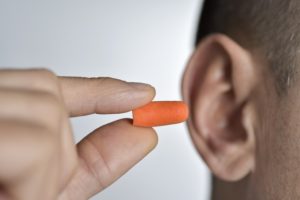
Hidden hearing loss can often go undetected in traditional hearing tests.
During a hearing test, a person listens to sounds at different frequencies, and they signal whether they’ve heard it. If not, it signifies hearing loss.
Hearing loss has been believed to occur when the tiny hair cells in the ears die off, which causes the vibrations and electrical signals to have a difficult time making their way to the brain to be processed.
Other research has found that before sensory cells become damaged, connections to nerve fibers could disappear through loud noise exposure, which can go undetected on a standard hearing test.
Researcher Dr. M. Charles Liberman explained, “We always used to think if the audiogram came back normal, your ear was undamaged. And what we and a bunch of other people have shown in animals is that that’s not true. Just detecting whether sound is there is much easier to do than to understand it.”
Their findings were observed in mice, rats, guinea pigs, chinchillas, and even monkeys. The latest study involved college students who were separated into groups. They either wore earplugs to a concert or did not. Those who did not wear earplugs scored lower on the words-in-noise recognition test.
“The idea is if you compromise the ear at a young age, then it’s possible subsequent age-related problems will be worse. Your ear will deteriorate at a faster rate,” added Liberman.
Liberman suggests you should wear earplugs when exposed to loud noises, whether that be at a show, when mowing the lawn, or using power tools. Anything that creates loud noises for a prolonged period can damage your hearing.